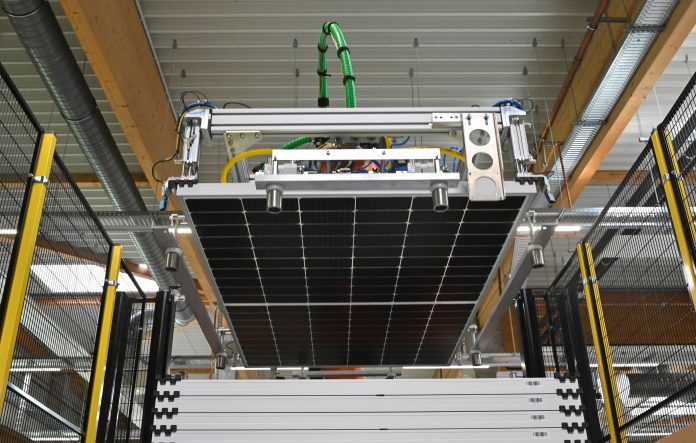Solar power will surpass coal as a source of electricity in the European Union (EU) for the first time in 2024, according to a report released on Thursday by climate think tank Ember.
The report showed that solar panels generated 11 per cent of the EU’s electricity in 2024, while coal-fired power plants generated 10 per cent of electricity. The share of fossil gas in electricity generation fell for the fifth consecutive year to 16 per cent. Beatrice Petrovich, co-author of the report, said:
“This is a milestone. Coal is the oldest way of producing electricity, but also the dirtiest. Solar is the rising star.”
Europe’s industrialisation was based on the use of coal, but the fuel has caused more pollution than any other energy source. Coal use in the EU energy sector peaked in 2007 and has since halved.
At the same time, there has been a boom in the use of clean sources of electricity. In 2024, wind and solar power’s share of EU electricity generation rose to 29 per cent, while hydropower and nuclear power continued to grow from their 2022 lows, The Guardian notes.
The report attributed the rise in solar power – the fastest growing energy source last year – to a record number of new panels, even though Europe had less sunshine than a year earlier. Jenny Chase, a solar analyst at BloombergNEF, who was not involved in the report, said:
“It’s good news that the increase in solar build is actually translating to a reduction in fossil fuel burn.”
The report notes that the share of coal has declined in 16 of the 17 countries that still used it in 2024. It says the fuel has become “marginal or absent” in most systems.
Germany and Poland, two countries that burn most of Europe’s coal, were among those that saw a shift to cleaner energy sources. The share of coal in Germany’s power grid fell 17 per cent year-on-year, while in Poland it fell 8 per cent, the report said.
Fossil gas consumption also continued to experience a “structural decline,” falling in 14 of the 26 countries using gas power, the report said.
The results came despite a slight increase in electricity demand after two years of sharp declines caused by the conflict in Ukraine. In response, the EU unveiled a plan to save energy, find new fossil fuel suppliers and accelerate the transition to clean energy.
The report said the EU is on track to meet its goal of increasing installed solar capacity to 400 GW by 2025. It reached 338 GW in 2024 and would be “within reach” of its 2030 target of 750 GW if it maintains current growth rates, according to the report.
The report’s authors called for investment in batteries, smart meters and other forms of “clean flexibility” that can help align renewable energy supplies, which vary throughout the day, with demand.
